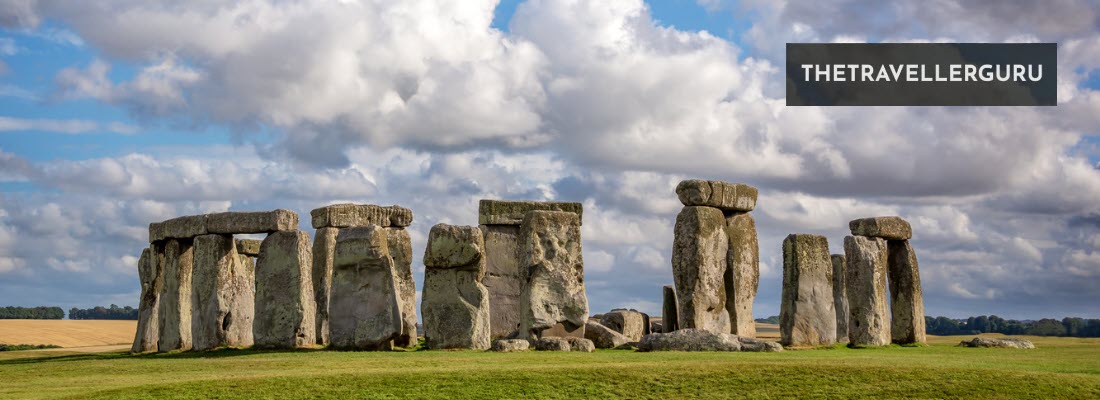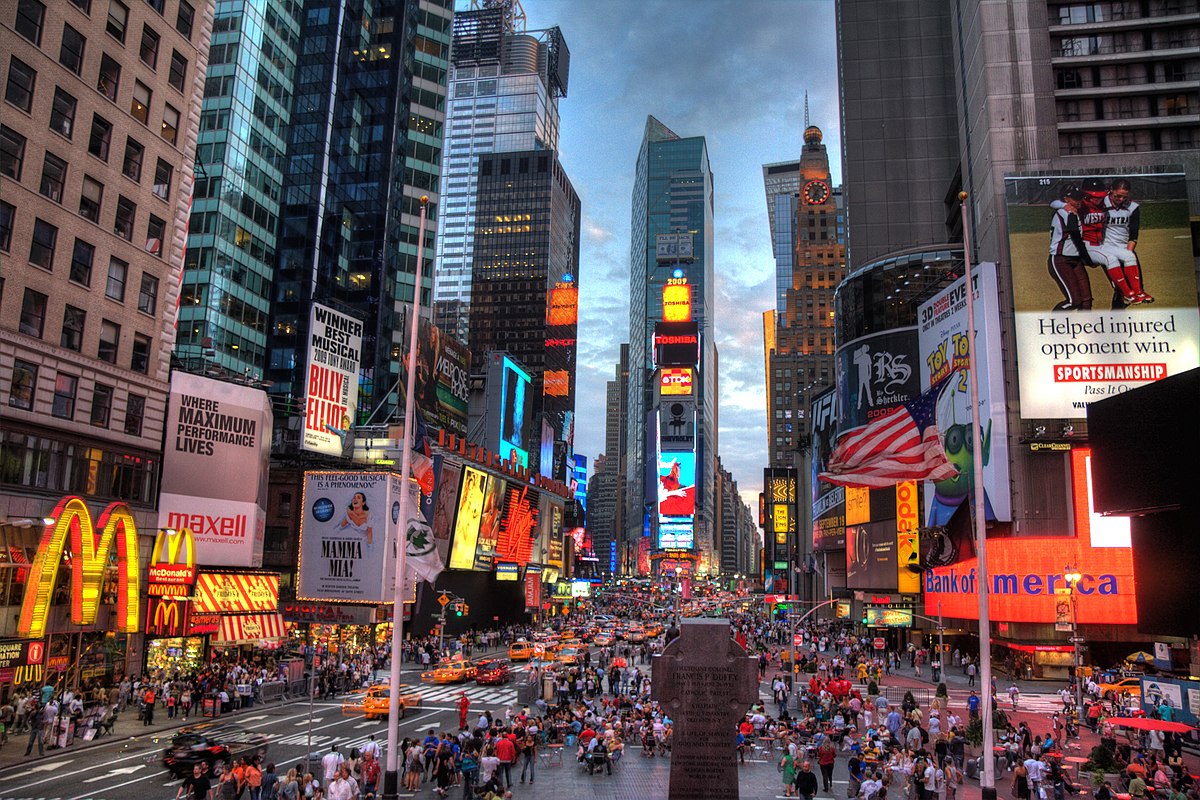Hey there travelers and welcome to my United Kingdom Travel Guide for this year. With its rich history, diverse culture and stunning landscapes, the UK is a popular destination for travelers from all over the world. But with so much to see and do, planning your trip can be overwhelming.
I have created this travel guide then as a means of giving you all of the information you may need to plan and enjoy your adventures in Great Britain. And as I cannot even begin to cover everything the United Kingdom has to offer, I will try and keep it as up to date as possible and update where necessary. I will also try and keep you up to date with entry and visa requirements as well.
Anyway, let’s pour ourselves a cup of tea and check it all out.
Getting There
When planning your trip to the United Kingdom, you have several options for getting there. Depending on your location, budget and preferences, you can choose to travel by air, train or sea.
By Air
Flying is the fastest and most convenient way to get to the UK from overseas. The country has several major airports including London Heathrow, London Gatwick, Manchester and Edinburgh, which offer direct flights to many destinations around the world.
If you’re looking for a budget-friendly option, consider flying with a low-cost carrier such as Ryanair or EasyJet. However, keep in mind that these airlines often charge extra fees for things like checked baggage and seat selection.
By Train
If you’re traveling from within Europe, taking the train can be a comfortable and scenic way to get to the UK. The Eurostar train connects London to Paris, Brussels, and Amsterdam, while other train services run between London and other European cities such as Berlin and Barcelona.
If you’re already in the UK and want to explore other parts of the country, taking the train is also a great option. The UK has an extensive rail network that connects major cities and towns and many train companies offer discounted fares if you book in advance.
By Sea
For a more leisurely and scenic journey, consider taking a ferry to the UK. Ferries run from several ports in Europe including Calais, Dunkirk and Rotterdam to ports in the UK such as Dover, Harwich and Newcastle.
Taking a ferry can be a great option if you’re traveling with a car or want to bring your own bicycle. Some ferry companies also offer onboard amenities such as restaurants, bars and shops, making the journey more comfortable and enjoyable.
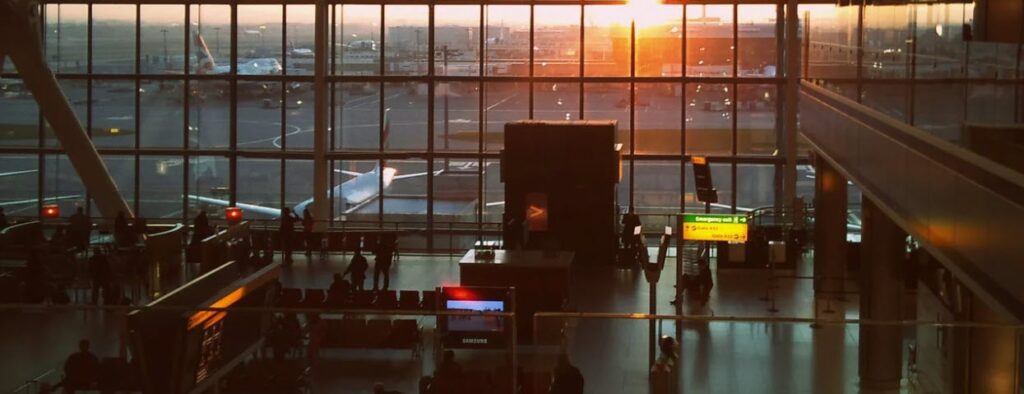
Visas and Documentation
If you are planning to travel to the United Kingdom, you need to make sure that you have the necessary visas and documentation. The requirements for visas and documentation vary depending on your nationality, the purpose of your visit, and the length of your stay.
Passport
You will need a valid passport to enter the United Kingdom. Your passport should be valid for the entire duration of your stay – and usually for at least three months after. If your passport is due to expire within this time, it is recommended that you renew it before your trip.
Check out these: 3 Best Passport Holders for Travel
Visa
Whether you need a visa to enter the United Kingdom depends on your nationality and the purpose of your visit. Citizens of some countries do not need a visa for a short visit, while others need a visa for any length of stay. You can check if you need a visa and apply for one on the UK Visas and Immigration website.
Supporting Documents
You may also need to provide supporting documents when you apply for a visa or when you arrive in the United Kingdom. These documents may include:
- Proof of accommodation
- Proof of financial support
- Proof of return travel
- Letter of invitation
Make sure to check the specific requirements for your visa application or entry to the United Kingdom.
Border Control
When you arrive in the United Kingdom, your passport and visa (if required) will be checked at border control. You may also be asked questions about the purpose of your visit, your accommodation and your financial situation.
Make sure to have all your documents ready and answer truthfully. If you do not have the necessary documentation or if your answers are not satisfactory, you may be denied entry.
Currency and Money Matters
When traveling to the United Kingdom, it’s important to familiarize yourself with the local currency. The official currency of England, Wales, Scotland and Northern Ireland is the pound sterling (£), often abbreviated to GBP. Here are some things to keep in mind when it comes to currency and money matters in the UK:
Cash or Card?
While cash is still commonly used in the UK, many places also accept credit and debit cards. It’s a good idea to have some cash on hand for small purchases and to use your card for larger transactions. Just be aware that some places may have a minimum spend for card payments.
Currency Exchange
If you need to exchange currency, it’s best to do so at a bank or currency exchange office. Avoid exchanging money at hotels or airports as they often charge higher fees. Keep in mind that exchange rates can vary, so it’s a good idea to shop around for the best rate.
ATMs
ATMs, or cash machines as they’re called in the UK are widely available and accept most major cards. Just be aware that some ATMs may charge a fee for withdrawals and your bank may also charge a foreign transaction fee. Check with your bank before you travel to see what fees may apply.
Prepaid Currency Cards
Another option for accessing money in the UK is to use a prepaid currency card. These cards allow you to load money onto them before you travel and then use them like a debit card. Some popular options include the Travelex Cash Passport and the Virgin Money Prepaid MasterCard.
Tipping
Tipping is not always expected in the UK, but it’s common to leave a small tip at restaurants and for taxi rides where a standard tip is around 10% of the total bill. If you receive exceptional service, you may want to leave a larger tip. Just be aware that some restaurants may include a service charge on the bill, so check before you leave a tip.
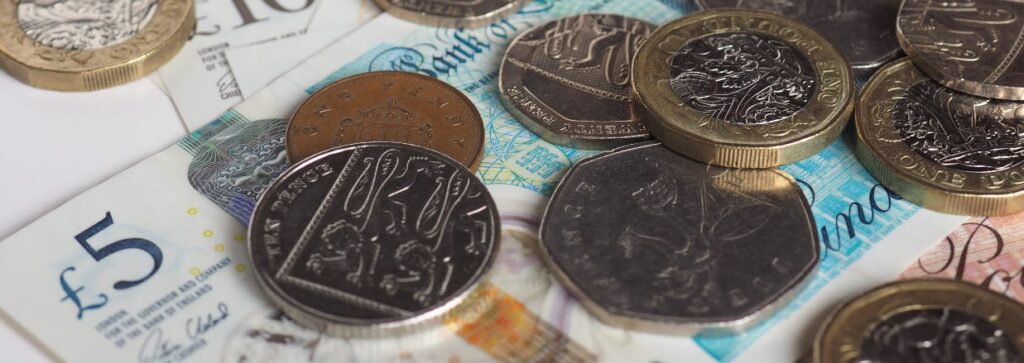
Accommodation
When planning a trip to the United Kingdom, one of the most important things to consider is your accommodation. There are many options available to suit all budgets and preferences. Here are some of the most popular types of accommodation in the UK.
Hotels
Hotels are a popular choice for travelers who want comfort and convenience. There are plenty of hotels available in the United Kingdom ranging from budget-friendly options to luxury hotels. Many hotels offer amenities such as on-site restaurants, fitness centers, and room service.
It’s important to do your research and read reviews before booking a hotel to ensure that it meets your needs and expectations.
Check out these: 10 Best Hotels In London
Bed and Breakfast
Bed and Breakfasts (B&Bs) are a great option for travelers who want a more personal and authentic experience. B&Bs are typically small, family-run establishments that offer comfortable rooms and a home-cooked breakfast.
They are often located in charming, historic buildings and offer a more intimate setting than hotels. B&Bs can be a great way to meet locals and get insider tips on the best things to see and do in the area.
Hostels
Hostels are a popular choice for budget-conscious travelers and backpackers. They offer shared dormitory-style rooms as well as private rooms and are a great way to meet other travelers for a fun and social experience.
Many hostels offer communal areas such as kitchens and lounges, as well as organized activities and tours. It’s important to note that while hostels are generally safe and clean, they may not be suitable for everyone.
Check out these: Best Hostels in London
Transportation Within the UK
When planning your trip to the United Kingdom, it is important to consider how you will get around. The country has a variety of transportation options to choose from including public transport, car rental and cycling.
Public Transport
Public transport in the UK is a convenient and cost-effective way to get around. The bus network is extensive and covers most areas of the country, while the train network is fast and efficient, making it a popular choice for getting around London or for longer journeys.
If you plan to use public transport frequently during your trip, it may be worth investing in a Visitor Oyster Card. This pre-paid electronic card can be used on buses, the tube, trams and most rail services within London’s travel fare zones. You can save time by ordering your card before you arrive or one-day paper travelcards (which cover bus, tube, and inner-city rail services) are also available.
Car Rental
Car rental is a popular option for those who want the freedom to explore the UK at their own pace. There are many car rental companies to choose from and prices can vary depending on the time of year and the type of car you choose. It is important to note that in the UK, cars drive on the left-hand side of the road.
When renting a car, be sure to check the rental company’s policies on fuel, insurance and mileage. It is also a good idea to familiarize yourself with UK road signs and driving laws before setting off on your journey.
Cycling
Cycling is a great way to explore the UK’s towns and cities and there are many dedicated cycle paths and routes to choose from. Many cities have bike-sharing schemes, which allow you to rent a bike for a short period of time and return it to a designated docking station.
If you plan to cycle during your trip, be sure to wear a helmet and follow the rules of the road. It is also a good idea to carry a map or GPS device to help you navigate unfamiliar areas.
Book your trip to The United Kingdom here!

Food and Drink
When traveling to the United Kingdom, trying out the local cuisine is a must. From iconic cakes to heart-warming stews, the UK has a lot to offer when it comes to food and drink. In this section, we’ll take a closer look at some of the traditional dishes and the best pubs and bars to visit.
Traditional Dishes
The UK has a rich culinary history and there are many traditional dishes that you should try during your visit. Here are a few of the most popular:
- Fish and Chips: This classic dish consists of crispy battered cod or haddock served with deep-fried chips smothered in salt and malt vinegar. You’ll find this dish across England in chippies (fish and chips shops), cafes and pubs. Even posh gastro bars will have it on the menu.
- Sunday Roast: This is a staple in many English (and British) homes. It usually consists of roasted meat (beef, lamb, or chicken, served with roast potatoes, vegetables and Yorkshire pudding. You’ll find this dish in many pubs and restaurants across the UK.
- Full English Breakfast: This is a hearty breakfast that typically includes eggs, bacon, sausages, black pudding, baked beans, grilled tomatoes and toast. It’s perfect for those who need a filling meal to start their day.
Check out these: 10 Best Full English Breakfasts in London
Pubs and Bars
The UK is famous for its pubs and there are many great ones to choose from. Whether you’re looking for a traditional pub or a trendy bar, you’ll find something to suit your taste.
- The Churchill Arms: This pub in London is famous for its flower-covered exterior and cozy interior. It serves a great selection of beers and traditional pub food.
- The Clachaig Inn: This pub in Scotland is located in the heart of Glen Coe and is a popular spot for hikers and climbers. It serves a great selection of local beers and whiskies.
- The Dead Dolls House: This trendy bar in London is located in a former Victorian townhouse. It serves a great selection of cocktails and small plates.
When visiting pubs and bars in the UK, it’s important to remember that tipping is not mandatory, but it’s appreciated. If you’re happy with the service, it’s customary to leave a tip of around 10% of the total bill.
Attractions
When it comes to attractions, the United Kingdom has something for everyone. From historical sites to natural wonders and museums, you’ll find plenty to see and do during your visit.
Historical Sites
The UK is home to some of the most iconic historical sites in the world. Here are a few must-see destinations:
- Buckinham Palace: The residence of the King located in the heart of London.
- Tower of London: This historic castle is located in the heart of London and has served as a royal palace, prison, and even a zoo over the centuries. Be sure to check out the Crown Jewels while you’re there.
- Stonehenge: Located in Wiltshire, Stonehenge is a prehistoric monument that dates back to 3000 BC. It’s a fascinating example of ancient engineering and is surrounded by beautiful countryside.
- Edinburgh Castle: This castle is perched atop a hill in the heart of Edinburgh and has played a crucial role in Scottish history for centuries. Be sure to take a guided tour to learn more about its fascinating past.
Natural Wonders
The UK is home to some stunning natural wonders that are worth exploring. Here are a few to add to your itinerary:
- Lake District: Located in northwest England, the Lake District is a stunning area of natural beauty that’s perfect for hiking and outdoor activities. Be sure to check out Lake Windermere, the largest lake in England.
- Giant’s Causeway: Located in Northern Ireland, the Giant’s Causeway is a natural wonder that consists of over 40,000 interlocking basalt columns. It’s a UNESCO World Heritage Site and is steeped in legend and folklore.
- Isle of Skye: This beautiful island off the west coast of Scotland is known for its rugged landscapes and stunning scenery. Be sure to check out the Fairy Pools and the Old Man of Storr while you’re there.
Museums and Galleries
The UK is home to some of the world’s best museums and galleries. Here are a few to add to your list:
- British Museum: Located in London, the British Museum is home to an incredible collection of artifacts from around the world. Be sure to check out the Rosetta Stone and the Egyptian mummies.
- Tate Modern: This modern art museum is located in London and is home to an impressive collection of contemporary art. Be sure to check out the iconic Turbine Hall.
- National Museum of Scotland: Located in Edinburgh, this museum is home to a fascinating collection of Scottish history and culture. Be sure to check out the Lewis Chessmen and the Dolly the Sheep exhibit.
Whether you’re interested in history, nature or art, the UK has plenty of attractions to keep you entertained during your visit.
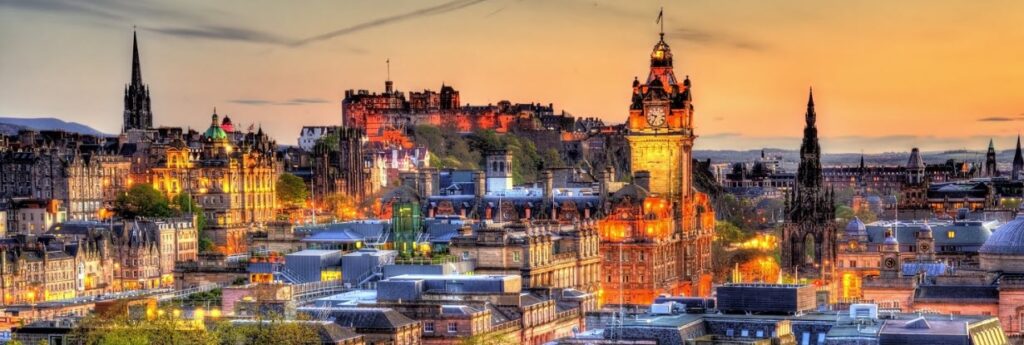
Shopping
When it comes to shopping in the United Kingdom, there are plenty of options to choose from. From high-end luxury boutiques to quirky independent shops, the UK has it all. Here are some tips to help you make the most of your shopping experience:
Where to Shop
London is the obvious choice for shopping with its world-famous department stores like Harrods, Selfridges and Liberty. But there are plenty of other cities and towns that offer great shopping experiences as well. Manchester, Birmingham and Glasgow are just a few examples of cities with fantastic shopping districts.
If you’re looking for something a little more unique, head to one of the many independent shops and markets that can be found throughout the country. The Camden Market in London, the Northern Quarter in Manchester and the Lanes in Brighton are all great places to start.
What to Buy
The UK is known for its fashion, so it’s no surprise that clothing is a popular item to buy. You can find everything from high-end designer clothes to vintage pieces in the many shops and markets throughout the country.
If you’re looking for souvenirs to bring back home, consider picking up some tea or biscuits from a local shop. You can also find plenty of unique gifts and trinkets at the many independent shops and markets.
When to Shop
Most shops in the UK are open from 9am to 5pm, Monday to Saturday. Some shops may also be open on Sundays but this can vary depending on the location. If you’re looking to avoid the crowds, consider shopping during the week or early in the morning.
Tips for Shopping
- Be prepared to pay a little extra for high-end items. Luxury goods can be quite expensive in the UK.
- Don’t be afraid to haggle at markets and independent shops. Many shop owners are open to negotiation.
- Keep an eye out for sales and discounts. Many shops offer seasonal sales and clearance events.
- Bring a reusable bag with you to avoid having to pay for a plastic bag.
- Be mindful of customs regulations when bringing items back home. Some items may be restricted or require additional fees.
Book your trip to The United Kingdom here!
Etiquette and Customs
When traveling to the United Kingdom, it’s important to be aware of the local customs and etiquette. Here are a few tips to help you blend in with the locals:
Punctuality is important
According to Insider, punctuality is important in the UK so if for example you are invited to somebody’s house, you’re generally expected to arrive on time, but “you have a 10-15 minute grace period if you are running late.” This means that if you are running late, it’s polite to let your host know as soon as possible.
Queuing
The British are known for their love of queuing (lining up). Whether you’re waiting for a bus or ordering a coffee, it’s important to join the end of the queue and wait your turn. Cutting in line is considered rude and is likely to earn you some disapproving looks – or even some abuse.
Tipping
Tipping in the UK is not as common as it is in some other countries. In restaurants, it’s customary to leave a tip of around 10% if the service was good, but this is not mandatory. In pubs, it’s not necessary to tip unless you are particularly impressed with the service.
Health and Safety
When traveling to the United Kingdom, it is important to take care of your health and safety. Here are some tips to keep in mind:
Vaccinations
Before traveling to the United Kingdom, it is recommended that you are up to date on routine vaccinations such as measles, mumps, rubella (MMR), chickenpox and the flu. Additionally, it is recommended that travelers be vaccinated against hepatitis A and B, especially if you plan to stay for an extended period or have close contact with locals.
Health Precautions
The United Kingdom has a high standard of healthcare, but it is still important to take precautions to stay healthy while traveling. Here are some tips to keep in mind:
- Wash your hands frequently, especially before eating or touching your face.
- Drink bottled water or tap water that has been boiled or treated with chlorine tablets.
- Use insect repellent and wear long-sleeved clothing to protect against mosquito bites.
- Be aware of food safety and avoid eating undercooked or raw meat and fish.
Safety Precautions
The United Kingdom is generally a safe country however as with most places it is still important to take precautions to stay safe while traveling. Here are some tips to keep in mind:
- Be aware of your surroundings and avoid walking alone at night in unfamiliar areas.
- Keep your valuables, such as your passport and money, in a secure place.
- Be cautious of pickpockets and keep your belongings close to you in crowded areas.
- Follow local laws and customs, especially when it comes to alcohol and drug use.
By following these tips, you can help ensure a safe and healthy trip to the United Kingdom.
Language Tips
English is the official language of the United Kingdom, but there are some regional variations in vocabulary and pronunciation that you may encounter during your travels. Here are some language tips to help you navigate your way:
- Greetings: When meeting someone, it’s common to shake hands and say “hello” or “hi.” In more formal settings, you may want to use “good morning,” “good afternoon,” or “good evening” instead.
- Pronunciation: Some words are pronounced differently in the UK than in other English-speaking countries. For example, “schedule” is pronounced “shed-yool” instead of “sked-yool,” and “aluminum” is pronounced “al-yoo-min-ee-um” instead of “uh-loo-muh-num.”
- Vocabulary: There are some differences in vocabulary as well. For example, “chips” are what Americans call “fries,” and “crisps” are what Americans call “chips.” “Biscuits” are what Americans call “cookies.”
- Slang: The UK has a rich variety of slang and colloquial expressions. Some common ones include “bloke” (a man), “cheers” (thank you), and “mate” (friend).
By keeping these language tips in mind, you’ll be better prepared to communicate with locals and enjoy your travels in the UK.

Outdoor Activites
The United Kingdom, with its varied landscapes and climates, offers a plethora of outdoor activities. Here are some of the most popular outdoor pursuits:
- Walking and Hiking
- The UK boasts an extensive network of well-marked footpaths and trails, making walking and hiking a favourite pastime. Whether it’s the picturesque Lake District, the rugged Scottish Highlands, the rolling hills of the Cotswolds, the coastal paths of Cornwall or one of the numerous national parks, there’s something for every enthusiast. Many walkers also challenge themselves with long-distance routes such as Hadrian’s Wall Path or the Pennine Way. Check out some of the United Kingdoms best hiking trails here.
- Cycling
- Cycling is both a sport and a leisure activity in the UK. The country offers a mix of terrains suitable for road cyclists, mountain bikers, and families looking for a gentle ride. National Cycle Network routes run throughout the country, and mountain biking trails, such as those in the Forest of Dean or the Peak District, offer thrilling challenges for the more adventurous.
- Rock Climbing
- With regions like the Peak District, Lake District, Snowdonia, and various sea cliffs, the UK is a haven for rock climbers. Whether you’re into traditional climbing, bouldering or sport climbing, there’s a plethora of routes and crags that cater to all skill levels.
- Surfing
- The UK might not be the first place that comes to mind when thinking about surfing, but places like Cornwall and the coasts of Wales have some fantastic waves. Newquay, in particular, is known as the UK’s surf capital, hosting numerous competitions and events.
- Golfing
- Golf originated in Scotland, so it’s no surprise that the UK is a hotspot for this sport. World-renowned courses like St. Andrews, Royal Troon, and Royal Portrush attract enthusiasts from all over the globe. Check out the best golf courses in the United Kingdom here.
- Fishing
- The diverse freshwater and saltwater environments across the UK provide numerous opportunities for angling. Whether it’s fly fishing in the Scottish rivers, coarse fishing in English lakes, or sea fishing off the coast of Wales, fishing is a relaxing and often rewarding way to engage with nature.
- Horse Riding
- Horseback riding is deeply rooted in British culture. The countryside offers myriad bridle paths and trails, making it a joy to explore on horseback. Whether it’s the moorlands, forests, or beaches, riding is a unique way to see the UK.
- Sailing and Watersports
- The extensive coastline and numerous lakes in the UK offer great opportunities for sailing, kayaking, canoeing, and paddleboarding. The Solent, between the Isle of Wight and mainland England, is particularly renowned for its sailing events.
- Birdwatching
- The diverse habitats in the UK attract a wide variety of bird species. Reserves like Rutland Water, Farne Islands, and RSPB Minsmere are some of the top spots where bird enthusiasts gather with their binoculars and cameras.
- Wild Camping
- While there are restrictions in many parts of the UK, wild camping is legally permitted in much of Scotland. It’s a great way to immerse oneself in nature, particularly in the remote Highlands.
Book your trip to The United Kingdom here!
Festivals and Events
When planning your trip to the United Kingdom, it’s worth considering the various festivals and events that take place throughout the year. From music festivals to cultural celebrations, there’s always something exciting happening in the UK. These include:
Music Festivals
The UK is home to some of the world’s most iconic music festivals. The Glastonbury Festival, held in June, is one of the most famous. It’s a five-day event that attracts around 200,000 visitors each year and features a mix of music, comedy and theater. Other popular music festivals include the Reading and Leeds Festivals, held in August, and the Isle of Wight Festival, held in June.
Cultural Celebrations
The UK is home to a diverse range of cultures, and there are plenty of celebrations and events that reflect this. The Notting Hill Carnival, held in August, is one of the largest street festivals in the world and celebrates Caribbean culture. The Edinburgh Fringe Festival, held in August, is the largest arts festival in the world and features a mix of theater, comedy and music.
Sporting Events
If you’re a sports fan, there are plenty of events to choose from in the UK. The Wimbledon Tennis Championships, held in July, is one of the most prestigious tennis tournaments in the world. The Henley Royal Regatta, held in July, is one of the most famous rowing events in the world and the Grand National, held in April, is one of the most famous horse races in the world.
Other Events
There are plenty of other events and festivals to explore in the UK. The Hay Festival, held in May, is a celebration of literature and attracts some of the world’s most famous writers. The Jorvik Viking Festival, held in February, is a celebration of Viking culture and features reenactments and battles. And the Bonfire Night celebrations, held in November, commemorate the failed Gunpowder Plot of 1605 and feature fireworks and bonfires.
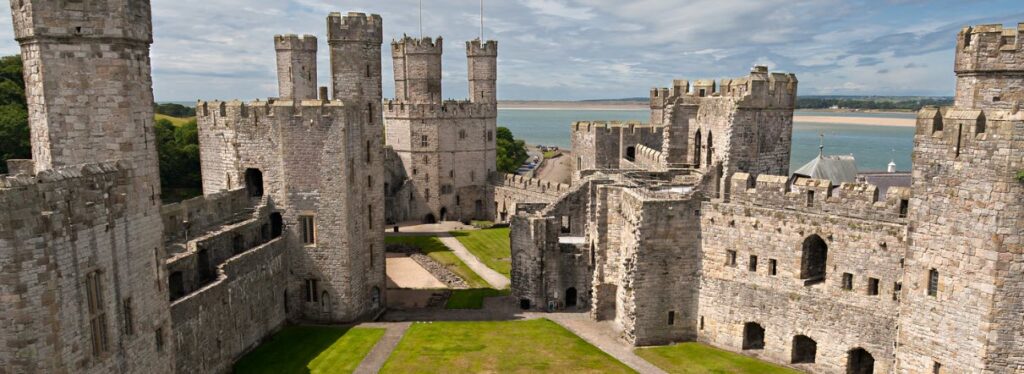
Conclusion
So there you have it, my travel guide to all things Great Britain. I hope it has been of assistance but as usual, reach out if you have any questions or comments.
Do you have any other tips or favorite things to do in United Kingdom? If so, please comment below.
Until next time
Have fun
Paul
